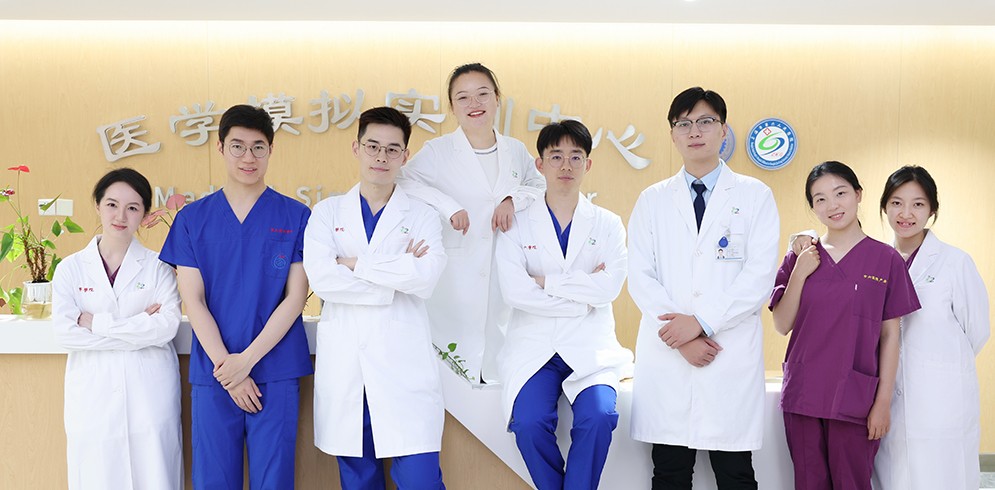Search

To meet the requirements of the Ministry of Education and the National Health Commission for strengthening clinical skills and medical ethics among medical students, the Clinical Medical School has introduced an innovative early clinical exposure program. Designed to ignite a passion for the medical profession and foster clinical thinking, the program helps students build a foundational understanding of medical work systems.
On September 2, 2024, 36 students from Shanghai Jiao Tong University School of Medicine’s eight-year and five-year clinical medicine programs began a transformative one-week “Early Clinical Exposure” course at Shanghai Sixth People’s Hospital.
The program offered a meticulously planned five-day curriculum, combining theoretical learning with hands-on clinical practice. Activities included a hospital overview and history exhibition hall tour, outpatient and ward internships, medical guide shadowing, a research experience sharing session, visits to the Otorhinolaryngology Head and Neck Surgery Institute, basic surgical skills training, and virtual arthroscopy simulation.





Students were grouped into specialized departments, such as endocrinology, respiratory medicine, pediatrics, and traditional Chinese medicine, to participate in diverse internship activities. These placements provided opportunities to delve into the complexities of disease diagnosis and treatment, showcasing the necessity of robust medical knowledge, clinical acumen, and a strong sense of responsibility.
The Clinical Medical School has refined and iterated its approach over years to create a program that blends theoretical coursework with real-world clinical exposure. Students gained firsthand experience of clinical decision-making processes and observed how doctors integrate multiple perspectives into treatment plans. This multidimensional learning experience vividly demonstrated the role of clinical thinking and teamwork in daily medical practice.
The active collaboration of various hospital departments, combined with the dedication of teaching staff, enriched the learning experience. Students expressed their appreciation for the opportunity to transition from abstract theoretical concepts to a dynamic, three-dimensional understanding of clinical environments. Many noted that the program helped solidify their commitment to pursuing a medical career, enhanced their learning enthusiasm, and fostered a deep sense of professional pride.

Latest News
- Tracing the Root, Tackling the Rare: The Fourth Session of the 2025 Clinical Case Discussion Successfully Held11-04
- Intensive Specialized SP Practicum Solidify the Foundation of Clinical Education09-20
- Tracing the Root, Tackling the Rare: Third Session of the 2025 Clinical Case Discussion Successfully Held by Clinical Medical School and Medical Affairs Office08-06
- Tracing the Root, Tackling the Rare: Second Clinical Case Discussion of 2025 Held Successfully07-10
- Tracing the Root, Tackling the Rare: First Clinical Case Discussion of 2025 Held Successfully03-19
- Enhancing Excellence in Residency Training: Specialized Capability Development for Core Faculty12-30
- Supervision Guides a New Journey, Steadfast Actions Ensure Quality Advancement12-06
- Strengthening Residency Training Through Collaboration: 11-20




